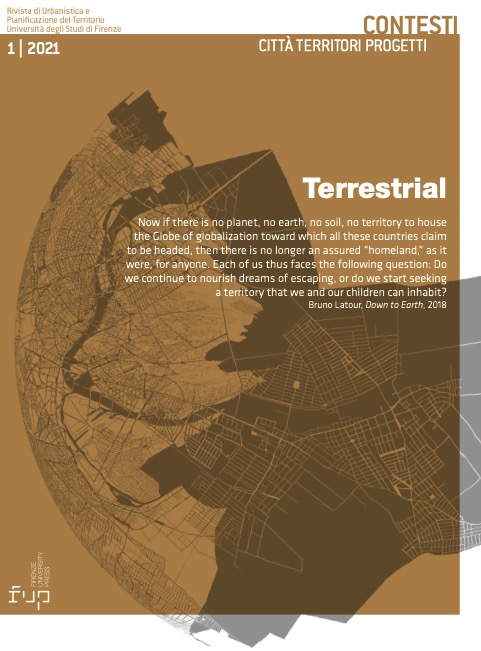Published 2021-11-26
Keywords
- urban policies,
- governance,
- ecological transition,
- circular economy,
- local sustainable development
How to Cite
Abstract
Productive districts introduce a principle of bio-uniqueness between the urban and productive dimensions at the territorial level. The Terrestrial questions the relationship between human and non-human agents and highlights the role of territory in charting the course of politics. The territory as a response to the environmental and social crisis, and as the only future horizon for both old and new inhabitants. The adoption of circular economy policies leads to a confrontation with innovative solutions and pushes towards increased sustainability of cities and their production systems. The city of Prato, known for its textile district, has promoted integrated policies and strategies to accelerate the circular transition. Prato Circular City has as its strengths the involvement of local stakeholders and a methodological approach based on governance that addresses priority issues for the definition of shared policies. The circular city model is a possible response of the territory to the crisis: a strategy to promote innovation, social cohesion and territorial resilience.


